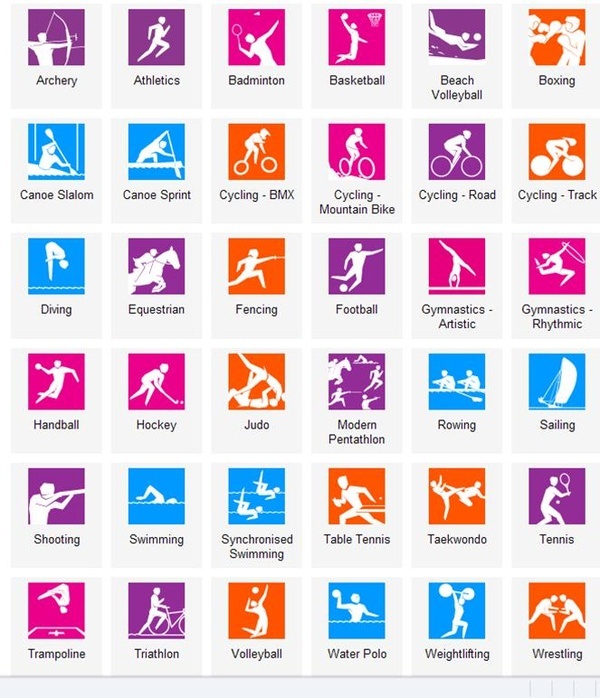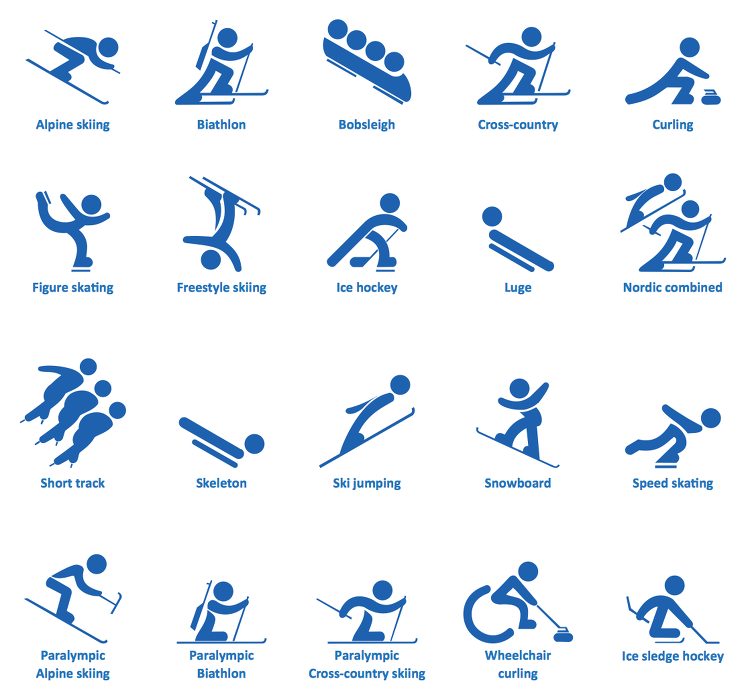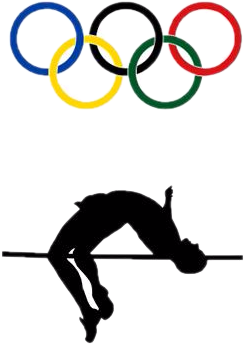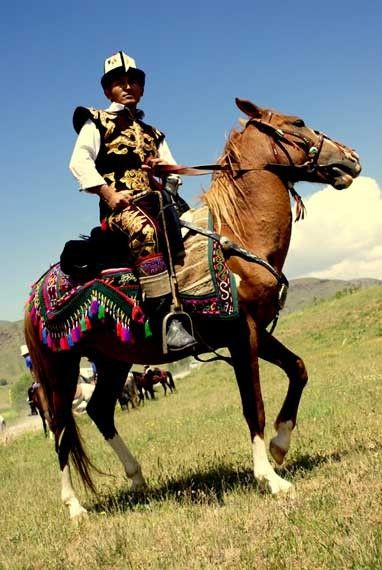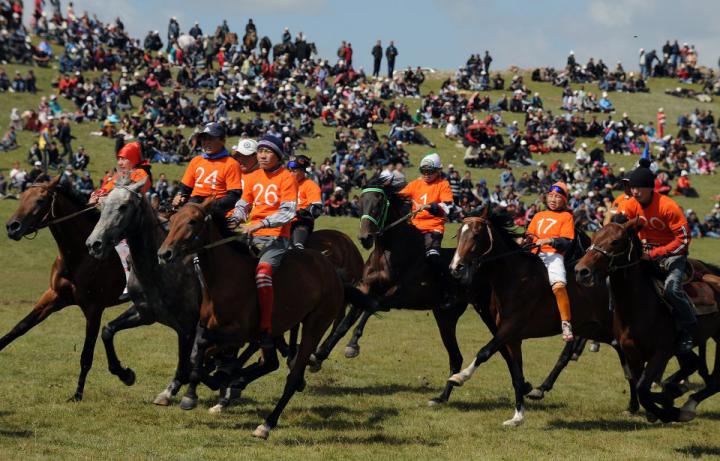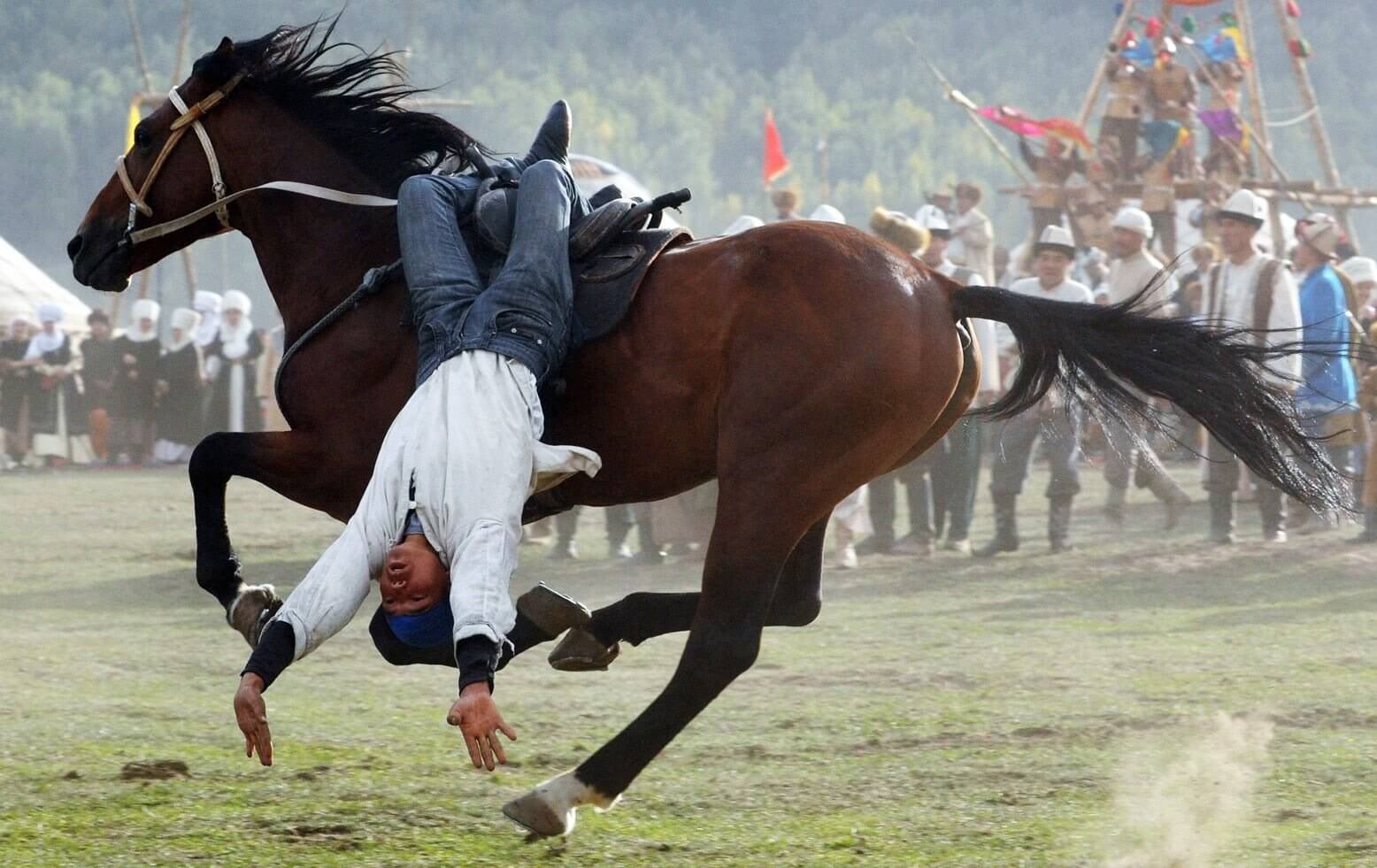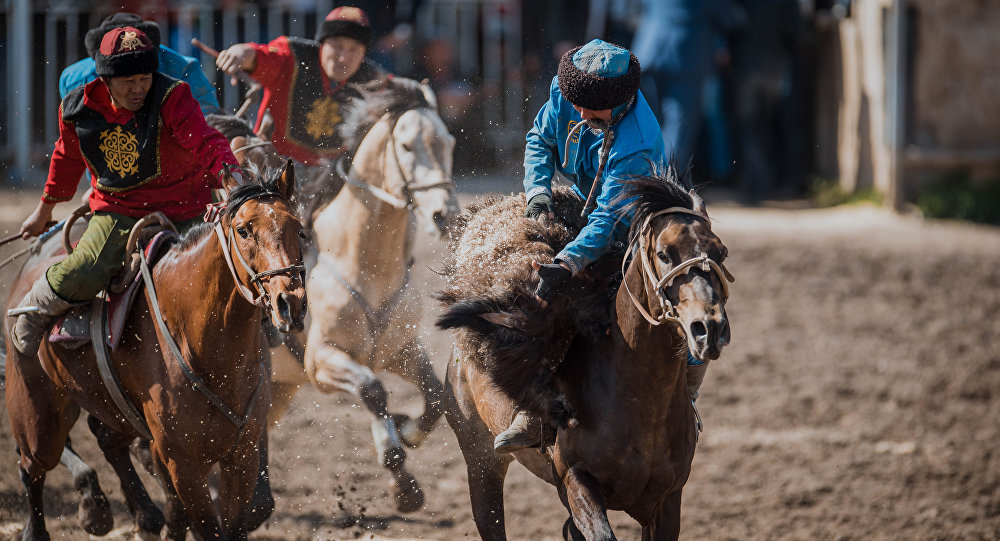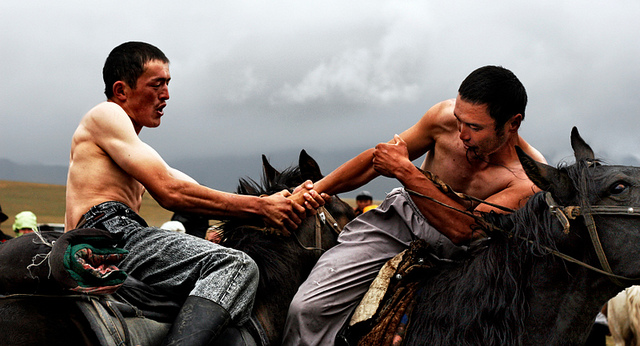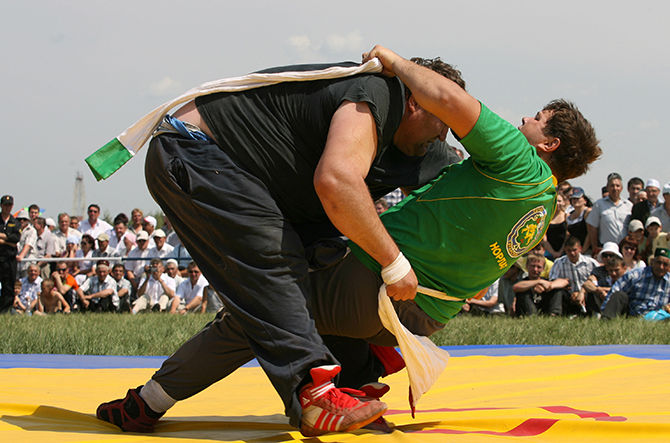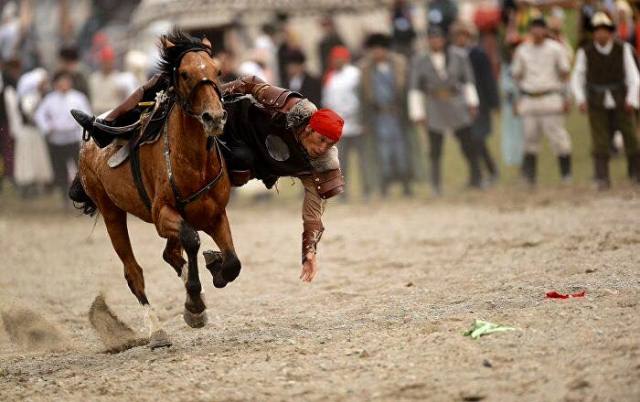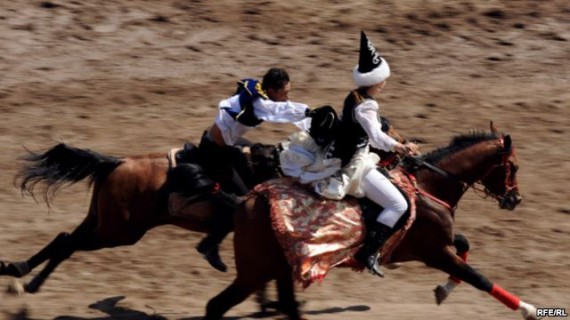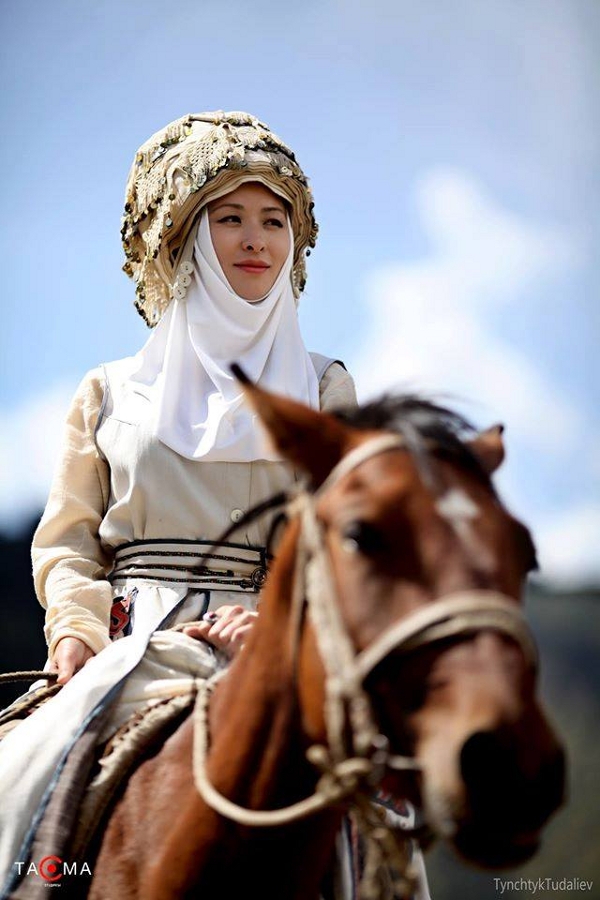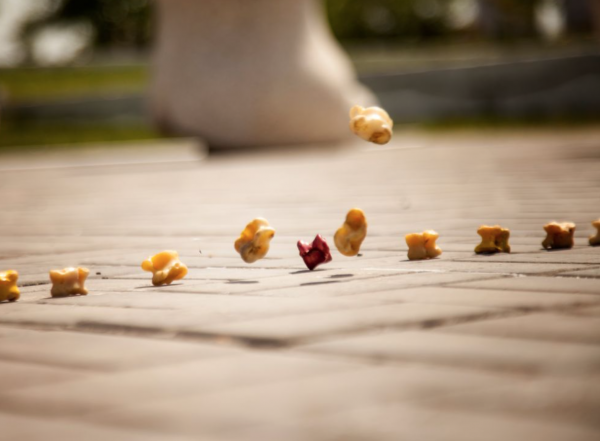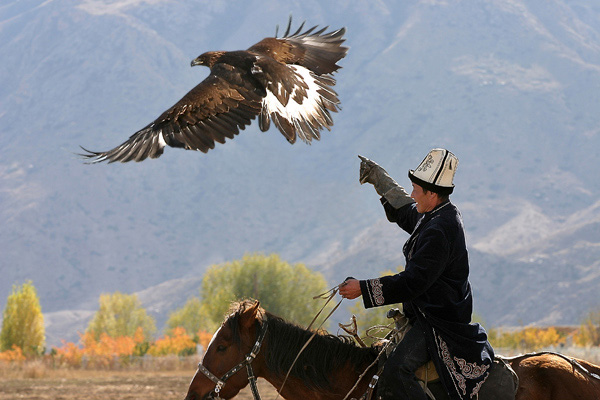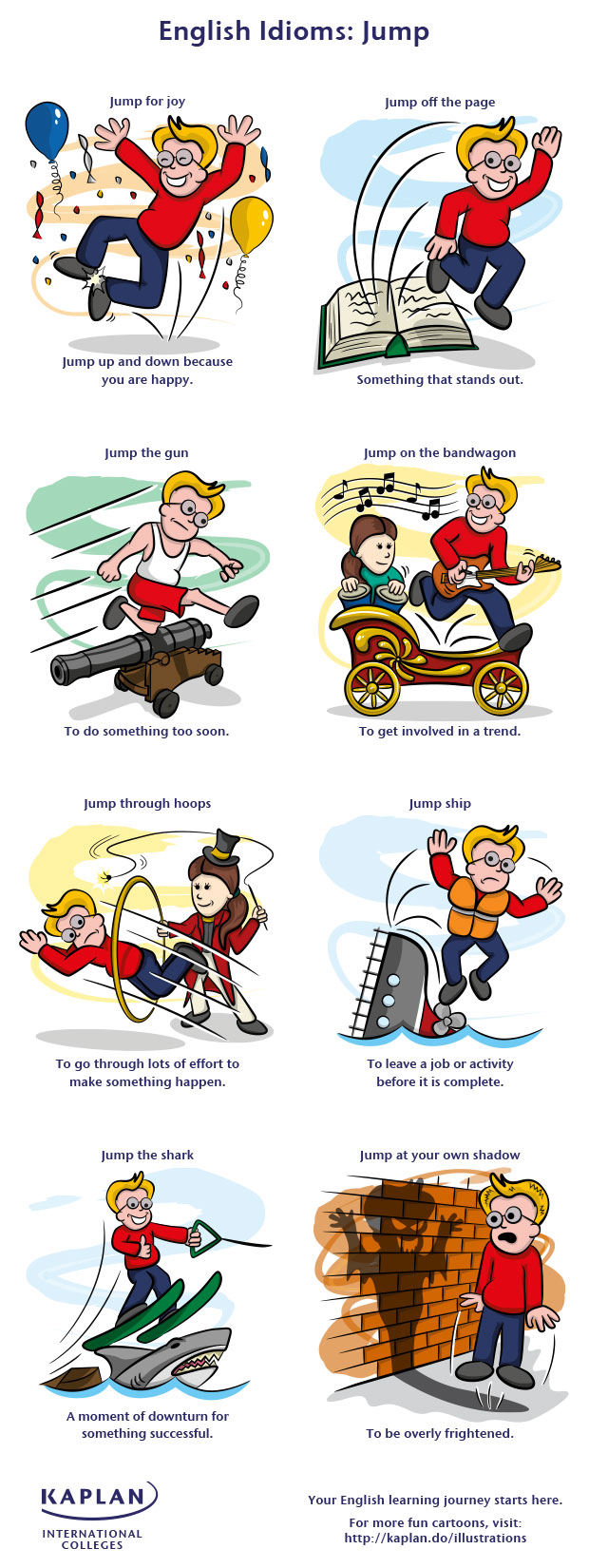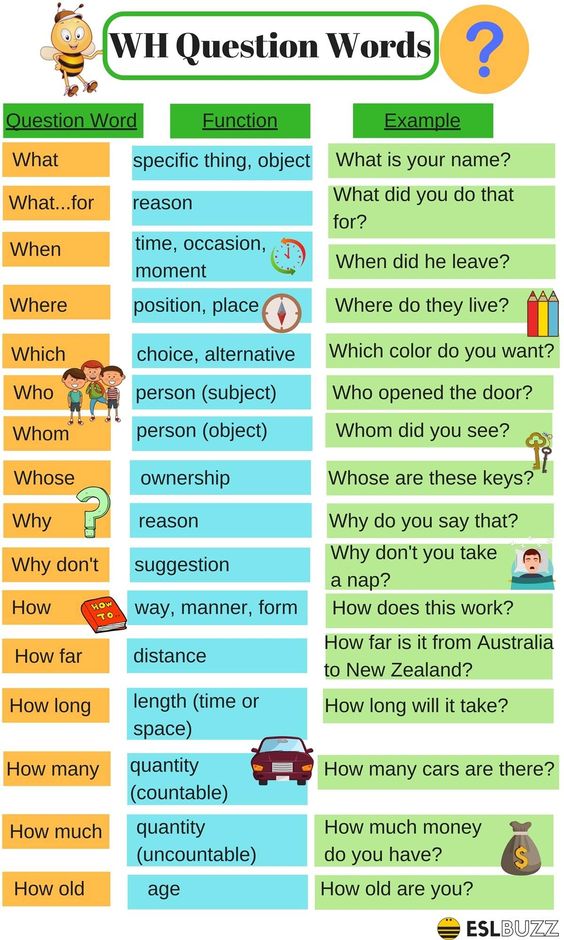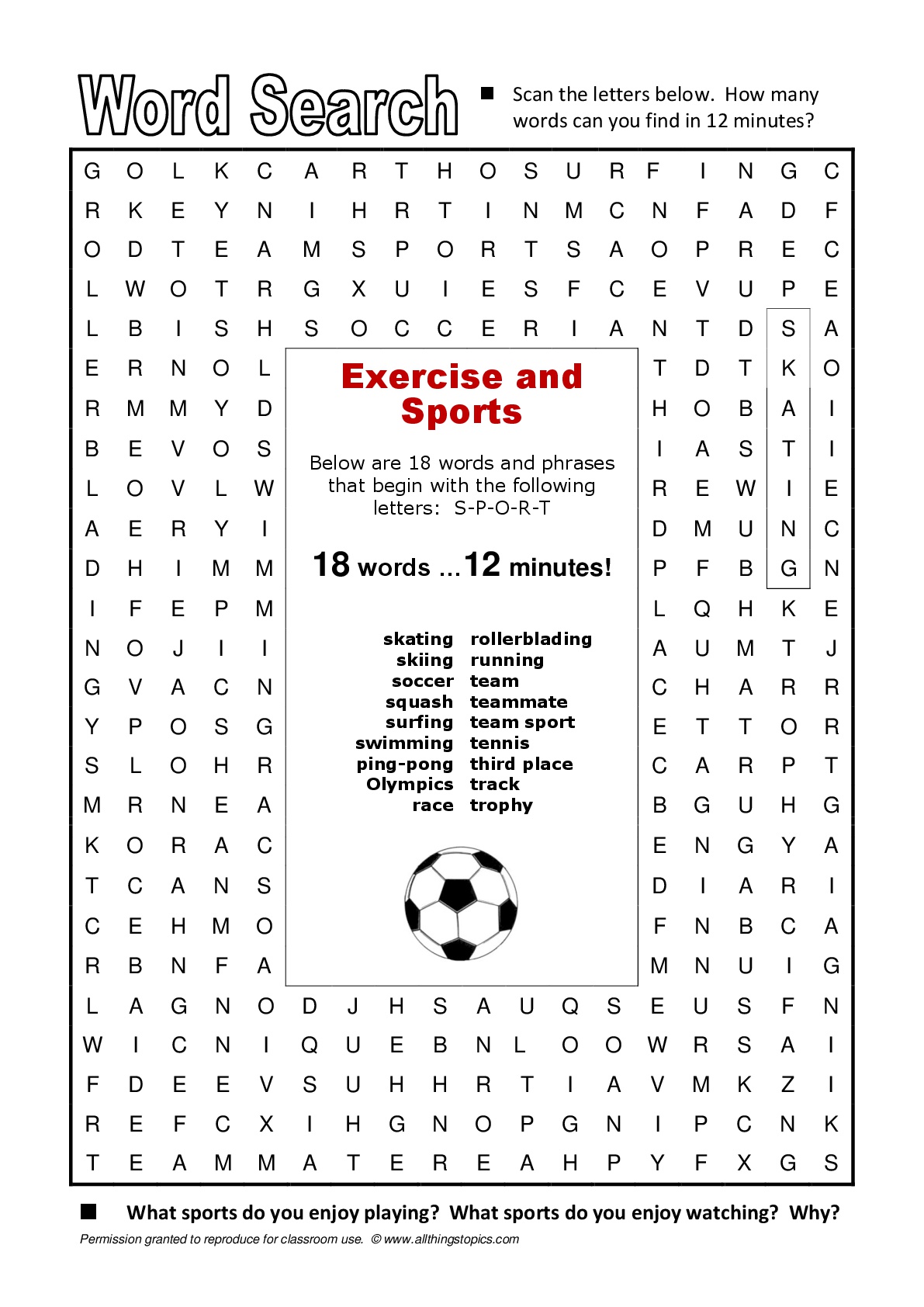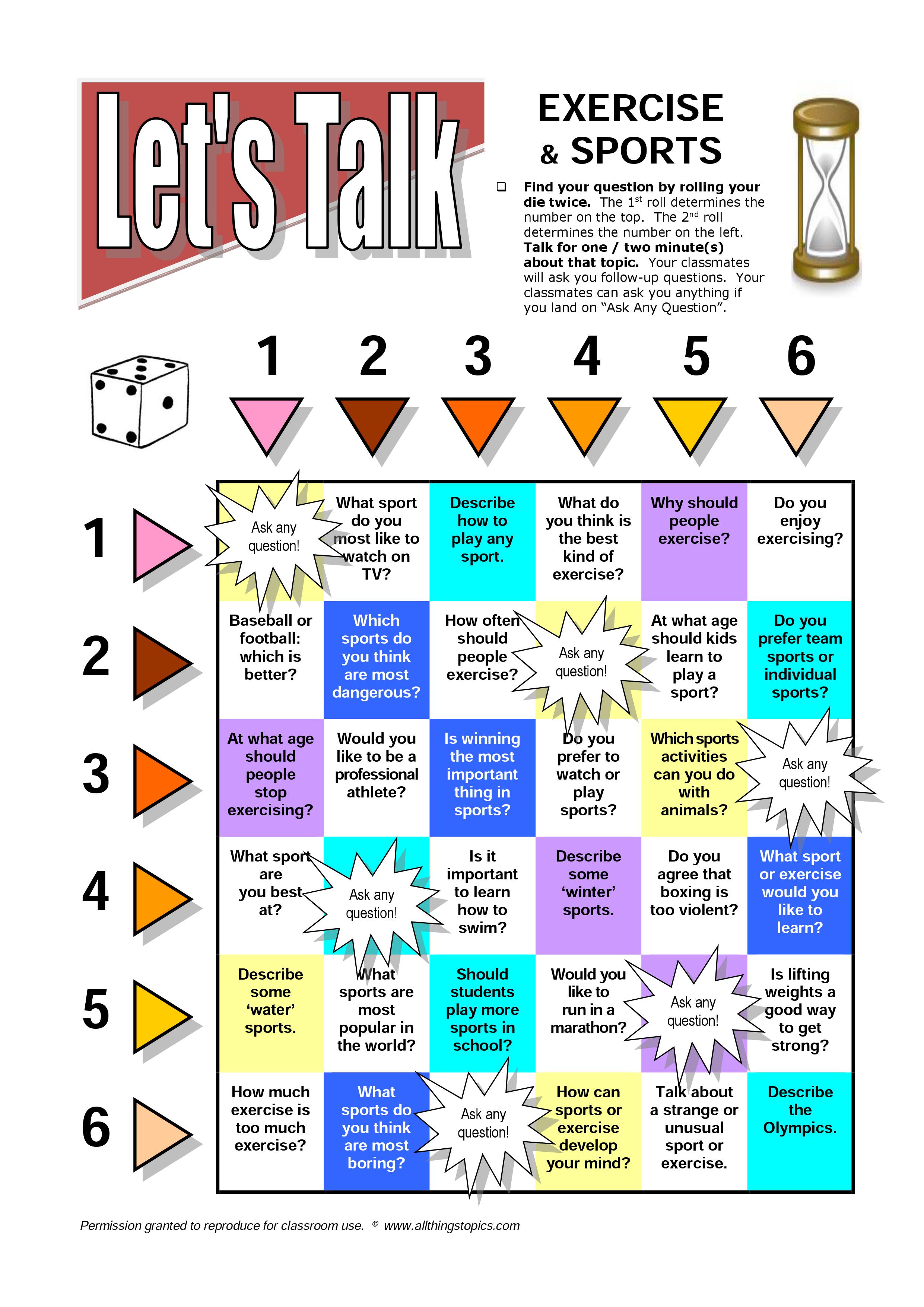Health and Sport — различия между версиями
Admine2 (обсуждение | вклад) (→Bibliography) |
Admine2 (обсуждение | вклад) |
||
| Строка 317: | Строка 317: | ||
<div class="large-10 small-10 large-centered small-centered columns rubric" style="margin-top:20px">Take the Test</div> | <div class="large-10 small-10 large-centered small-centered columns rubric" style="margin-top:20px">Take the Test</div> | ||
</div> | </div> | ||
| − | + | ||
</div> | </div> | ||
</div> | </div> | ||
{{lang|Health and Sport}} | {{lang|Health and Sport}} | ||
Текущая версия на 07:45, 22 октября 2018

Содержание
Kinds of Sport
Olympic Games
OLYMPICS
Question: What do you already know about the Olympics?
Athletes competed in the first Olympic Games in Greece almost three thousand years ago in 776 BC. Every four years, people from Greek city-states (and later the Roman empire) traveled to a place called Olympia to watch the games, which continued until 393 AD. They lasted from between one and five days, and only men were allowed to compete in the games. Many of the sports events were similar to those found in today’s modern games where athletes run, jump and throw. The modern Olympic Games began with the creation of the International Olympic Committee (the IOC) in 1894 and Greece was the first country to hold the games, in the city of Athens, in 1896. Fourteen countries with 241 athletes competed in fortythree events. Although some people wanted to have the games in Athens every four years, the IOC decided to have them in different countries and cities. In 1900, they were held in Paris and women were allowed to compete in the games for the first time. The first Winter Olympic Games were held in 1924 and athletes competed in events such as skating and ice hockey. Over 200 countries now compete in the Summer Olympic Games. The number of events has increased to 300 events and instead of five days of competition, the games now last for seventeen days. There are some problems, however. There were no Olympic games held in 1916, 1940 and 1944 because of war. Also, some athletes use drugs to help them win. In addition, the games are very expensive. The 2014 Winter Games in Sochi, for example, cost $US50 billion. Nevertheless, the Olympic Games continue to be extremely popular all over the world.
Sport in Kyrgyzstan
A horse is man’s wings
To the Kyrgyz, a horse is a prized possession, and horsemanship a much-prized skill. Perhaps, therefore, it is not surprising that among the most popular national pastimes, or sports) are contests on horseback. The relationship between a man and his horse is praised in the heroic epic poem «Manas» — The mighty hero, Manas, resembles a tower built of silver and his snow-white steed Ak-Kula carries him swiftly over the mountain tops. The horse looks like a bird hovering over the sharp peaks of the mountains. Chinghiz Aitmatov's novel «Farewell Gulsary» tells a touching story of the of the relationship between a horse (a pacer) and his owner as the old man reflects on events in their shared life as the horse lies dying. Kyrgyz horses possess such qualities as lightness and good coordination (essential in the mountains). They are exceptionally hearty, will eat almost anything, and are not susceptible to sudden changes of weather. They can endure long-distance marches with the rider. For these reasons Kyrgyz ponies were prized possessions even further a field in Russia and Europe in the past.
At Chabysh - Long-Distance Races
Long-distance races are an ancient and widespread sport. Fast and hearty horses capable of enduring long-distance are chosen for the race. Experienced trainers prepare yearlings for a race called «tai chabysh» and one-and-a-half year old foals run in the «kunan chabysh» race. When the animals become three years old they are entered into the competitions proper. Previously «Aht-chabysh» races were held on different occasions, usually in connection with some holiday or commemorative festival. The winner (or its owner) was given some jewelry and cattle as a reward. Horses of various breeds and ages took part in the races. Each trainer had his own methods of preparing the racer for the competition. The distance was 53 versts (1 versta - 1,066 km), later on 100 kilometers. Moreover the riders were quite often boys of 10-13 years of age, sometimes riding without a saddle. According to current rules, only horses three years old and older of any breed are admitted to the races. The riders «minimal age must be not less than 13. The distance ranges from 4 to 50 kilometers.
Dzorgosalysh - Pacer's Races
Amble (laterally gaited) is a rapid double tempo pace. The pacer swings the right front and right hind legs forward at the same time. Experts consider «dzorgo» to be a great merit of a horse. These horses demonstrate not only speed but also gracefulness. The Kyrgyz people have many proverbs and sayings related to the pacer, such as: «Don’t let your horse run beside a pacer.»
Kok-boru or Ulak tartysh
Wrestling on Horseback for a Goat’s Carcass - kok-boru or ulak tartysh mean «grey wolf». Apparently, the original game came historically developed in antiquity when herds of cattle grazed in the steppes and mountains all year round, exposed to possible attacks by wolves. Having no firearms, the shepherds could not deal with wolves. Brave djigits (horse riders) chased after the wolves until the beasts of prey fell, then they began beating them with sticks and lashes, trying to snatch them away from each other. Later on when the people led a more settled life «kok-boru» was replaced by ulak-tartysh. There are two teams, consisting of an equal number of riders. The playing ground is 300 meters long and 150 meters wide. The opposite sides of this area, marked with flags, present symbolically «the gates». In the center of the playing ground a carcass of a goat, weighing on an average of 30-40 kilograms, is placed. One game is 15 minutes long. The objective of the game is to seize the goat’s carcass and deliver it into the gates of the contesting team. The players are allowed to pick up the carcass from any place within the limits of the field, take it from their rivals, pass or fling it over to the partners, carry it pressed to the horse’s side or suspended between the horse’s legs. During the course of the game some unlikely, unforeseen and ad hoc alliances may be formed among the participants. These alliances are usually short-lived, dissolving in the rapid fluidity of the competition as quickly as they are established. So one moment brothers may be vying for the honor of becoming the new champion, whilst old rivals can be seen aiding each other. All this fosters fast-thinking teamwork that is absolutely vital under actual combat conditions (which the game very realistically simulates). The rules forbid rearing the horse, making your horse collide with a rival’s at a high speed, seizing the rivals horse by the bridle, taking the reins off of it, including blows with a whip, or shouting or entering into conversation with one’s opponent.
Oodarysh - Wrestling on Horseback
It is one of the most popular games. Two riders try to pull each other off the horseback. It is allowed to throw the rival together with his horse. The time given for wrestling is 10 minutes. The rider who manages to pull the rival off his horse or throw him down together with the horse wins the competition. The rules allow the player to seize the rival by his sash or arms, by his torso, to press his knees or feet against the trunk of the rival`s horse.
Kuresh – waist wrestling
Kuresh – one of the most popular types of national sport in Kyrgyzstan. Wrestlers (aged 16 and over) stand in a circle, approach each other and place their hands onto waist area of another wrestler. On a judge’s sign fight begins. It is allowed to use any tactics as long as the hands do not get misplaced or get unattached from the opponents’ waists. The winner will be the wrestler who manages to put down his opponent to the floor on his both shoulder blades. Duration of the fight is 4 minutes for youngsters and 6 minutes for adults.
Tyin enmey – picking up coin off the ground
Overall length of the distance from start to finish is no more than 100 metres. Tyin – the coin is located on a clean smooth surface, marked in white sand or sawdust, 50-60 metres away from the starting line. That is the coin that should be picked up by the participant. The participant will ride up to a starting line and on the judge’s sign, he should ride at not below the gallop pace. In a case where the participant goes into a slow pace or a horse comes into a halt at the moment of reaching out for the coin, the result would not be taken into consideration, neither there will be given a second chance for another round. The competition will be timed from start to finish. If the rider falls off the horse, he should get back on it and get to the finishing line. Otherwise he will be withdrawn from the game. Each participant is allowed 3 rounds. The victory will be awarded to the one who will manage to pick up the coin as many times as possible.
Kyz-Kuumai - Chasing After the Bride
The man has to catch up the girl and kiss her. Otherwise she could beat him with a whip One of the most interesting horse games is kyz kuumai (chasing after the bride). In olden days this game was a part of the wedding ritual. According to the rules the bride was given the best racer and she was entitled to a head start on her horse that began the race. The bridegroom set out in pursuit to catch up with her, in this way proving his love and right to marry her. Being at a disadvantage with the slower horse the bridegroom sometimes failed to catch up with up with his fiancee. Yet, although she might beat him with her Kamchi (or horse-whip) she did not reject him and the wedding would be held all the same. It’s the very beautiful game: they both wear bright national clothes, they rush on horses as wind and he tries to reach her with warlike clamors… At present this traditional folk game is usually held during holidays for example in the green meadows of high mountain pastures, (zailoo) or on racecourses.
Kyz dzharysh - Girls and Young women’s Races
A Kyrgyz woman learns to ride a horse in her childhood in the highlands, where there are severe winters and deep snows, where flocks of sheep are driven up and down steep slopes of mountains or across turbulent foaming rivers, and where one cannot do without a horse. It is possible to make out the difference between the girl and women riders by their headdresses. Girls put on hats with a wide marten trimming while young women wear pretty kerchiefs. Jumby Atmai - Shooting at the target while galloping «Jumby» in Kyrgyz means an ingot of silver or other jewelry on a thread tied to an inclined pole. The contestant has to break the thread with a shot and bring the jumby down. Originally, the contestant used a bow and arrow that was replaced by firearms over the course of time. Besides the games we have named there are several other games, such as picking up coins from the ground while galloping («Tyin enmei»), falconry on horseback (with falcons or eagles) for foxes, wolves and pheasants.
Upai
Upai – it is a traditional game with bones from the sheep knee joints (chuko). This traditional Kyrgyz game can be played indoors as well as outdoors. Most preferable place is the floor covered by a felt carpet – alah kyiiz. Players play in two teams of 2, 4 or more members. The quantity of chuko (bones) necessary for the game can vary from 13 up to 37 and more, but it is important, that the total chuko correspondent to the rule: the total should be divided by 3 without the remainder and plus 1. Every 3 chuko make up a collection, a set, called "upai" or "basym". The purpose of the game is to collect it is as many upai as possible (sets from 3 bones).
Falconry
Hunting with the golden eagle is an ancient tradition that dates back to the Mongol conquest of Central Asia around the 12th and 13th centuries, when a fine eagle and good horse cost similarly and were the main indicators of their owner’s wealthy. Centuries have passed but in Kyrgyzstan there are still nomads who hunt with eagles and ride specially trained horses. Eagle hunters here are called “berkutchi”. Kyrgyz people are experts in training eagles for hunting. Yet training eagles takes a lot of time (3-4 years), it should be done by one person, and requires constant daily application. When the golden eagle is still a chick, the trainer personally feeds it and speaks to it so that the tone of his voice is imprinted in the animal's mind. Later on, the eagle is able to distinguish human voices and will obey only voice of his master. When the eagle is almost an adult, the trainer shows it the hides and furs of the animals it must hunt so that it becomes used to the smell and characteristics of the prey; all this is done with special commands. Sent out to bunt fawns, foxes, or other small animals, the eagle dives down on them and kills them. But often it is also capable of killing young wolves when they cannot negotiate the deep snow. Sometimes the eagles hunt in fairs, just as they do in the natural state.
Bibliography
- Sports in Kyrgyzstan // URL: http://www.kyrgyzstantravel.info/culture/games.htm (date: 17.11.2017)
- The ancient origins of the Olympics // URL: https://www.youtube.com/watch?v=VdHHus8IgYA (date: 17.11.2017)
- A short History of the Olympics text // URL: https://www.allthingstopics.com/uploads/2/3/2/9/23290220/lesson-olympics-history1.pdf (date: 17.11.2017)
- WH Question words // URL: https://www.eslbuzz.com/english-grammar-wh-question-words/ (date: 17.11.2017)
- Sport ESL Vocabulary for kids // URL: https://www.youtube.com/watch?v=-iJu3Vm5-_o (date: 17.11.2017)
- Sport and exercise actions vocabulary // URL: http://english-4everybody.blogspot.com/2014/08/sport-and-exercise-actions.html?spref=pi (date: 17.11.2017)
- Board Game: Health // URL: https://www.allthingstopics.com/uploads/2/3/2/9/23290220/board_game-health.pdf (date: 17.11.2017)
- Board Game: Sport and Exercises // URL: https://www.allthingstopics.com/uploads/2/3/2/9/23290220/boardgame_exercisesports.pdf (date: 17.11.2017)
- Word Search game // URL: https://www.allthingstopics.com/uploads/2/3/2/9/23290220/wordsearch_exercisesports.pdf (date: 17.11.2017)
- Exercise and Sports Quiz // URL: https://www.allthingstopics.com/uploads/2/3/2/9/23290220/quiz_exercisesports.pdf (date: 17.11.2017)
- Health Quiz // URL: https://www.allthingstopics.com/uploads/2/3/2/9/23290220/quiz_health.pdf (date: 17.11.2017)
- English Idioms: Jump // URL: https://www.myenglishteacher.eu/blog/wp-content/uploads/2014/12/sports-english-idioms.jpg (date: 17.11.2017)
Useful Links
Listening comprehension
http://learnenglishteens.britishcouncil.org/skills/listening-skills-practice/sports-centres
https://learnenglishteens.britishcouncil.org/skills/listening-skills-practice/sports-interviews
http://www.esl-lab.com/health/healrd1.htm
https://www.examenglish.com/B1/b1_listening_sports.htm
http://www.esl-lounge.com/student/listening/3L2-sports.php
Reading
http://www.excellentesl4u.com/esl-doctors-reading-comprehension.html
http://www.excellentesl4u.com/esl-sport-reading.html
Grammar
https://www.myenglishteacher.eu/blog/advanced-english-grammar-and-vocabulary-test-with-real-time-answers/
Bibliography
- 10 minute ABS // URL: https://www.pinterest.co.uk/pin/512495632590608450/ (date: 15.04.2018)
- Chronik pain // URL: http://subtleretreat.stfi.re/10-ways-to-manage-your-chronic-pain-from-home/?sf=eoxkewb site (date: 27.12.2017)
- Golf anatomy // URL: https://mashable.com/2018/04/02/meryl-streep-in-food/ (date: 10.04.2018)
- Chingiz Aytmatov Biography // URL: https://www.britannica.com/biography/Chingiz-Aytmatov (date: 20.10.2017)
- Usain Bolt biography: Draw my life // URL: https://www.youtube.com/watch?v=63zlaB4ebcM (date: 20.10.2017)
- Autobiography // URL: https://i.pinimg.com/736x/51/7a/d5/517ad5e4b30ef787f4f0ebbe5f984ede--autobiography-anchor-chart-autobiography-writing.jpg (date: 20.10.2017)
- Describing people’s physical appearance // URL: https://aliciateacher2.files.wordpress.com/2015/06/10422525_839360666144341_3441351478865995795_n.png (date: 20.10.2017)
- Appearance // URL: https://i.pinimg.com/564x/a0/e9/db/a0e9db37e0d462c84f993870a4a45b55.jpg (date: 20.10.2017)
- Describe your character // https://www.youtube.com/watch?v=uRGVtGfoXvI (date: 20.10.2017)
- Describe your appearance // URL: https://www.youtube.com/watch?v=XGdKDemKF30 (date: 20.10.2017)
- Identity // URL: https://i.pinimg.com/736x/e5/6a/1e/e56a1ee0d8aa885671797cffceadda6c--mind-maps-spirituality.jpg (date: 20.10.2017)
- Definition of Identity // https://www.slideshare.net/adnanabdullah92/sociology-15893623 (date: 20.10.2017)
- Jobs and occupations // URL: https://i.pinimg.com/originals/f7/12/a9/f712a9de3ba2dfd9bd9b5b222582b836.jpg (date: 20.10.2017)
- 9 jobs for people who love to travel/ CNBC // URL: https://www.youtube.com/watch?v=v_vIsUmEuRA (date: 20.10.2017)
- About Me Board Game // URL: https://americanenglish.state.gov/files/ae/resource_files/about_me_0.pdf (date: 20.10.2017)
- 6+6 professions born in the internet age #1 // URL: https://i.pinimg.com/originals/4d/65/71/4d6571dfd31df54f12b6619129dc57b6.jpg (date: 20.10.2017)
- 6+6 professions born in the interent age #2 // URL: https://i.pinimg.com/originals/aa/e7/1d/aae71d0840c434d5fdb94e3dc476e8ff.jpg (date: 20.10.2017)
- The evolution of applying for a job // URL: https://i.pinimg.com/originals/b4/1c/0b/b41c0b20c0034a6cbf29e86deb23dd4e.png (date: 20.10.2017)
- Barney Stinson’s Video CV // URL: https://www.youtube.com/watch?v=GuLcxg5VGuo (date: 20.10.2017)

